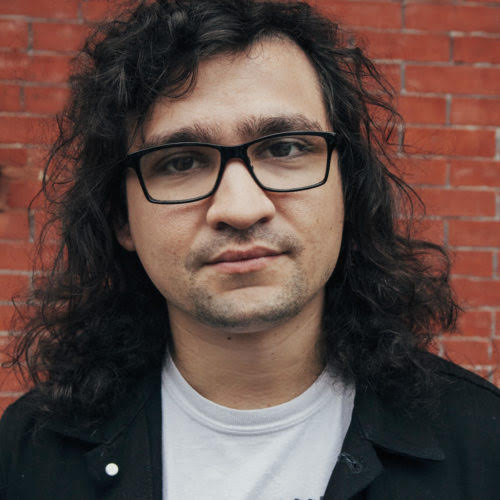The Rules of the Game: Film Festivals and Film Sales
Cannes 2014. Photo by Iain Marcks
The feature film you just spent the last couple of months (if not years) perfecting is finally finished... At least, you thought it was
In reality, your journey is hardly over and what’s to come may be a heartbreaking and confusing experience.
Innovations in cinema technology have made it easier for filmmakers to get their work produced. This is a good thing, but the market is over-saturated with projects, and where or how you fit into this world is not always clear.
Be realistic
Every filmmaker wants to play the top-tier film festivals like Sundance, Cannes, Berlin, SXSW, Toronto, Venice, or Tribeca, because acceptance to these festivals often secures a successful distribution life for the film. But that’s not a good enough reason to submit to every single festival.
The festival strategy and submission phase of a film’s lifecycle can be incredibly time-consuming and expensive for independent filmmakers. Your best first strategy will be to familiarize yourself with the festivals that can launch your film globally. This may be any one of the aforementioned festivals, with an expansion into niche markets, depending on the topic and style of your film — maybe IDFA or Hot Docs for your documentary, or Fantastic Fest for your horror film.
Do your research
I can’t stress this enough: do not indiscriminately submit to festivals. It can result in hundreds, if not thousands, of dollars lost. Honing this process will help you to find the right home for your film, and this begins with an understanding of the strengths and limitations of your work.
For example, if you believe that your film is likely to be accepted to Cannes for its world premiere, don’t submit to festivals that require an invitation response before you’re supposed to hear from Cannes. You already know you’re not going to accept the invite, so don’t waste the programmers’ time by submitting anyway.
Some festivals might allow you to re-submit the following year but many will not, and those that do will likely remember you turning down their original invitation. In short, don’t start your relationships off on the wrong foot.
Only a small percentage of films submitted to any film festival will be selected. Not only that, the majority of films playing in the largest of film festivals were submitted not by the filmmakers, but sales agents or distributors, to say nothing of personal connections or cultural institutes.
Look for sales
Sales should be on your mind at the earliest stages of your festival campaign. Beyond understanding the market and how to best exploit your film, sales agents have long-standing relationships with film festivals and can do a lot to prioritize your project for consideration.
This isn’t to say that signing with a sales agents secures an invite to the festival of your dreams, but it can improve the position of your film and guarantee the correct programmers are paying attention. Thousands of submissions are made to the top-tier festivals, and their programmers have close relationships with the sales agents they trust to consistently deliver quality content.

The European Film Market, 2018. Photo © Berlinale/ EFM
Do you have pre-existing relationships with programmers at the top-tier festivals? Do you believe your film is strong enough to survive the submission process and receive a natural invite? If you answered “yes” to either of these questions, it’s in your interest to wait for sales. A Sundance world premiere increases the sales value of your film exponentially.
Getting a sales company to do the work of landing a festival premiere means you bring less to the table. And without an agent, each subsequen festival rejection makes finding an agent — and the work of selling your film — harder and harder. Believe in your work, but don’t be dazzled by it, because your film begins to age the minute you start pitching it.
Find a festival strategist
Festival strategists are less common than agents, especially in North America, but there are many remarkable people doing great work in this field (Festival Agency, for instance).
A festival strategist operates in many of the same ways as an agent, but frees you up to focus on other tasks. This is a great solution for a producer who has direct contacts in distribution, but doesn’t have the time to dedicate to a healthy festival run, or for producers eager to begin the festival search, but aren’t ready to sign on for sales.
Don’t underestimate or undervalue the ways that a film festival can provide an identity and voice for your film.
And finally…
Don’t take it personally
This is somewhat impossible. It’s absurd to think that anyone will take the rejection of something they’ve invested their entire self into as anything but personal. But survival in the film industry is about learning how to navigate a sea of rejection, so try to keep in mind that the acquisition process for a festival, or a sales or distribution company really is incredibly difficult and rife with numerous questions and criteria that affect what is and isn’t selected. It’s truly never as simple as choosing a film one loves over a film one hates.
The only thing you have the ability to control in this process is your own work, and even then, once you release it into the wild you lose that control too. Until then, look for partners who understand who you are, what you’ve created, and what your goals are. Then develop an informed strategy, and enjoy the ride.
Hey, while you're here ...
We wanted you to know that The End Run is published by Endcrawl.com.
Endcrawl is that thing everybody uses to make their end credits. Productions like Moonlight, Hereditary, Tiger King, Hamilton—and 1,000s of others.
If you're a filmmaker with a funded project, you can request a demo project right here.
Myths of Gender and Screen Culture: Part 3
The feature film you just spent the last couple of months (if not years) perfecting...

